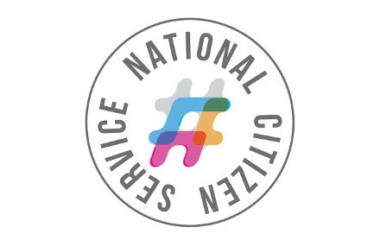The NCS Trust has managed to recover from providers just £218,000 of the £10m it spent on unfilled National Citizen Service places in 2016, according to Treasury minutes published this morning.
Minutes for the 7 December include the government’s response to the Public Accounts Committee’s report on the National Citizen Service, which had criticised the programme for a lack of evidence of long-term impact and high costs per place.
The government has now accepted most of the recommendations and said it aims to reduce the cost of places by 12 per cent.
But it revealed that the NCS Trust had struggled to recover the £10m it spent in 2016 on unfilled places.
It also said work has already been undertaken to reduce unit costs by “at least 12 per cent”.
The government said that ahead of the phased re-commissioning of contracts to provide the programme, “NCS Trust has already developed a detailed set of cost specifications”.
It also agreed with the Public Accounts Committee’s recommendation that the NCS Trust should publish benchmarking of its costs ahead of the next commissioning round.
Attempt to recover some of the £10m spent on unfilled places
In 2016 the NCS Trust spent £10m on places that went unfilled. The government response said the trust was currently trying to determine if the providers made a “surplus”, and is “in the process of negotiating with these providers to recover unspent funds”, but that in some cases “costs were higher than the funds provided”.
It said that in 2016 only two regions “appear to have had a residual surplus above what it cost them to deliver the summer season”. Nine “invested more to deliver the season than the amount the NCS Trust paid them”.
It has recovered £218,413.
New commissioning model
The government response said that a new commissioning model, which was implemented for this summer, had reduced the likelihood of unfilled places.
It said: “The new model uses detailed bottom-up forecast models to set a realistic baseline number of places for a given year. It includes a mid-season checkpoint where a decision is made about whether to commission additional places in the event of over-performance. By more carefully calibrating supply with demand, NCS Trust will reduce its delivered unit cost.”
‘Opportunity to consider delivery partners’
The government also backed the call for NCS to set out how it intends to expand and said the recommissioning process for NCS contracts was a “key opportunity for the Trust to consider which organisations will be involved in the delivery of NCS”.
It said: “A guiding principle in the network re-design is the need to focus on local communities and organisations to achieve long term social impact. The Trust will be encouraging organisations of all shapes and sizes that meet a clear set of minimum requirements, to review and bid for the opportunity.”
The NCS Trust is expected to outline its plans for the recommissioning process by spring 2018.
Evaluate long term impact
The government backed the recommendation to establish a way to evaluate the longer term impact of the programme.
It said a target date to publish its plans for evaluating long term impact should be February 2018 and said that DCMS will “shortly be commissioning to establish the best approach to measuring long term impact and value for money”.
A potential outcome of this study is that the programme forms greater links with the Department for Education to track the achievement of NCS graduates.
The government also backed recommendation for the NCS Trust to explain how it will ensure safeguarding will be embedded as it expands. This has already been implemented.
It also said that the NCS Trust had agreed to voluntarily publish more information about its finances ahead of transitioning to become a Royal Charter Body.
Improve governance
The government agreed to recommendations about the NCS Trust’s governance.
It said that making the body a Royal Charter organisation was part of this.
“The Department and NCS Trust continue to work together to establish the governance and accountability structures that will be needed as the trust transitions to Royal Charter. This will include the recruitment of a new board of the Royal Charter body. The Department will continue to report on the progress in this area in the coming months,” it said.
Managing Public Money
The government rejected the committee’s recommendation that the Cabinet Office provide a list of companies funded by the government, which do not have to follow the principles of Managing Public Money.
It said: “For companies in receipt of government grant funding which are not classified (or treated) as central government bodies, accountability for the allocation of grant money, and assurance as to its use, lies with the principal accounting officer of the grant-awarding department.”
Related articles












